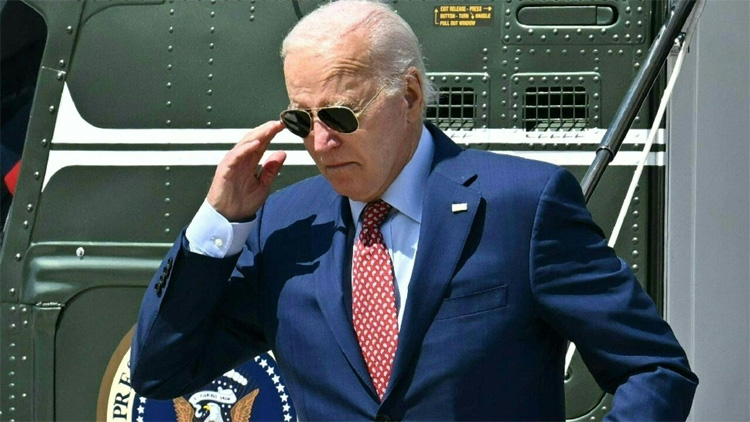Biden meets national security chiefs as Mideast war fears grow
US President Joe Biden held crisis talks with his national security team on Monday as fears grew that an Iranian counterattack on Israel could spark an all-out war in the Middle East.
Biden and Secretary of State Antony Blinken engaged in frantic diplomacy to try to ease tensions sparked by a suspected Israeli attack that killed Hamas political leader Ismail Haniyeh in Tehran.
The 81-year-old Biden flew back to the White House from a weekend in Wilmington, Delaware, and after a kiss for First Lady Jill Biden, he headed straight into the Oval Office without commenting to reporters.
The meeting in the heavily-secured situation room with officials including Vice President Kamala Harris would “discuss developments in the Middle East,” the White House said.
Earlier, Biden called King Abdullah II of Jordan while Blinken called the prime minister of Qatar and foreign minister of Egypt, the two key players in ceasefire negotiations between Israel and Hamas.
“It’s important that all parties take steps over the coming days to refrain from escalation and calm tensions,” State Department spokesman Matthew Miller told reporters, describing Blinken’s calls with officials in the region.
Biden and the Jordanian king meanwhile “discussed their efforts to de-escalate regional tensions, including through an immediate ceasefire and hostage release deal,” the White House said in a readout of the call.
Hopes of a ceasefire between key US ally Israel and Hamas in Gaza have suffered a major blow with the assassination of Haniyeh and the killing of Hezbollah military chief Fuad Shukr in Beirut hours earlier.
The United States has deployed extra fighter jets and warplanes to the region to support Israel, as reports suggested Iran could respond militarily as soon as Monday.
Iran has blamed the Tehran assassination on Israel, which has not directly commented on the attack.
Blinken told his counterparts from the G7 nations on Sunday that any attack, which he expected to be a joint undertaking between Hezbollah and Iran, could happen within 24 to 48 hours, as early as Monday, US news site Axios reported.
Blinken asked his counterparts to place diplomatic pressure on Tehran, Hezbollah and Israel to “maintain maximum restraint,” it added.
Blinken also emphasized the need to calm regional tensions in a call with Prime Minister Mohamed Shia Al-Sudani of Iraq, where some Iran-aligned groups targeted US troops earlier in the Gaza war, the State Department said.
White House Deputy National Security Adviser Jon Finer said on Sunday that the United States was “doing everything possible to make sure that this situation does not boil over.”
But the turmoil has deepened as Israeli Prime Minister Benjamin Netanyahu and Biden are increasingly at odds, despite a meeting at the White House less than two weeks ago.
Biden has backed Israel since Hamas’s October 7 attacks on Israel.
But Biden said on Thursday that he had a “very direct” call with Netanyahu urging him to reach a ceasefire deal, adding that the assassination of Haniyeh had “not helped” tensions.
The conversation became heated, with Netanyahu pushing back against suggestions that he was deliberately trying to sabotage efforts to reach a ceasefire and hostage release deal, The New York Times and Axios said.


Comments are closed.